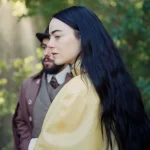The BP Top Ten of 2021
This list was compiled from the individual top ten lists of Sarah, Rudie, Aaron, Jim, Scott, Tyler, and David. Each film was weighted according to its placement on each individual list. As such, a film that appeared on only two writers’ lists could still wind up on the finalized list if it placed particularly high. Conversely, a film could conceivably be on everybody’s list, but not make the final list, due to low point value.
Honorable Mentions: Judas and the Black Messiah, Wheel of Fortune and Fantasy
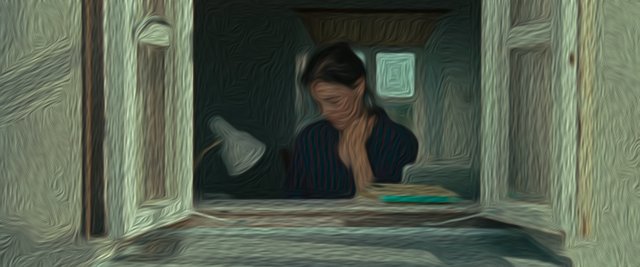
10. Bergman Island (dir. Mia Hansen-Love)
After a decade spent making films about the passage of time, Hansen-Løve’s best film to date is her most concentrated and imaginative. A couple, Chris (Vicky Krieps) and Tony (Tim Roth), retreat to Fårö, a Swedish island where legendary director Ingmar Bergman lived out the second half of his life and made many of his most famous films. The island has since become something of a tourist attraction and veritable theme park; what better tribute to one of his country’s greatest artists? Far from assuming the qualities of Bergman for herself, Hansen-Løve’s portrait of adult romantic relationships is occasionally fraught but often sweet, the island an idyllic getaway rather than the land of banishment Bergman used it to convey. This being an artistic couple, they’re here to create, and create Chris does, right before our very eyes, in a section of imagination that brilliantly, emotionally, and thrillingly reflects on what she was already thinking about, from a new perspective, and an old place that seems new. -SN

9. The Card Counter (dir. Paul Schrader)
In Schrader’s latest masterpiece, casinos are prisons disguised as paradises, an escape from one’s ordinary life far more regimented and controlled than any ordinary habitat. For his protagonist, William Tell (Oscar Isaac, coming into his own as a star), it is home. He spends as many days and nights as he can gambling to keep his mind occupied, away from his past, away from the lives he destroyed and the regret he’s faced. A second chance comes in the form of another aimless young man (Tye Sheridan) who’s set upon a mission that dredges up William’s past. But redemption is tough to find in Schrader’s world, and never comes without plunging oneself further into the darkness, where even the neon lights can’t find you. – SN

8. Licorice Pizza (dir. Paul Thomas Anderson)
It’s easy to get distracted enough by the nostalgia of Licorice Pizza – the soundtrack, the proximity to stardom, the unknown anticipation for the future – to assume that PTA’s latest lookback is a rose-colored yearning for a time and a place with less cultural expectations and restrictions. To be clear, there is an utmost fondness for the leads and their existential position in the Valley – it’s Paul Thomas Anderson, after all – but what makes Anderson’s direction so masterful is that he threads such a precariously fine line in both depicting this emotionally and sexually laissez-faire world and laying bare the complex and largely unhealthy emotional situations that can often unknowingly ensnare immature people who may not even be aware of the systems manipulating them. It’s revealing and somewhat worthy of pity that Gary (Cooper Hoffman), a 15-year old hustler ignorant of and unconcerned about larger social forces that affect his own fleeting business ventures, comes across as the “best” romantic option for Alana (Alana Haim), a directionless woman 10 years his senior who’s been conditioned by just about every man in her life to choose the wrong man for the wrong reasons. One of the scenes most typifying this conflict between the freedom to choose and the misogynistic forces hampering those choices comes when Alana is interviewing with casting agent Mary Grady (Harriet Sansom Harris), who in one moment chastises Alana for not wanting to perform nude scenes, while in the next, fighting back tears of pride when she hears the young girl is adept at Krav Maga (“You’re a fighter…I can tell”).
These young fools falling for each other without any concept of outcome or long term consequences is set against the backdrop of an entertainment industry that commodifies and objectifies people – women in particular – to such an extent that we’re meant to question whether Gary running to Alana after falling off the back of Jack Holden’s (Sean Penn) motorcycle is actually romantic or just more appealing than being discarded by a drunk old man who may not have even known her real name in the first place. -JR

7. Zola (dir. Janicza Bravo)
“Y’all wanna hear a story about why me and this bitch here fell out? It’s kinda long, but it’s full of suspense.” Those are the opening lines to Zola, spoken by the titular lead (Taylour Paige) about her one-time friend, Stefani (Riley Keough), and hoo boy is she right. But she’s only telling part of the truth. Were she entirely honest with us, she would’ve said “but it’s full of suspense and comedy and terror and awkwardness and empathy.” Based on a real story relayed in a series of 148 tweets by A’Ziah King that went viral, Zola is a rare gem of a film, thoroughly in touch with the culture that both spawned and responded to such an insane story of a calamitous Florida road trip, but told in such a manner that it’s aware of both the absurdity and danger inherent in just about every interaction. Zola is, after all, a film that has Nicholas Braun basically playing Succession’s cousin Greg, but swapping out the suits for backwards ball caps and baggy pants and high rise offices with seedy Florida strip clubs. Zola is not a thriller, but unfolds its story in ways that keep the audience on the edge of their seats, never certain if the next hotel or club or bodega will bring laughs or violence (or both) and edited in a kinetic manner that embodies the fast-paced evolution of its viral source material while avoiding the schizophrenic, incoherent nature of “MTV editing.” It’s hilarious and tense, a cautionary tale and an entertaining romp, depicting and humanizing people caught in a socio-economic system that perpetuates abuse and victims who would otherwise be written off as degenerates if their story were not given the proper respect and depth. – JR
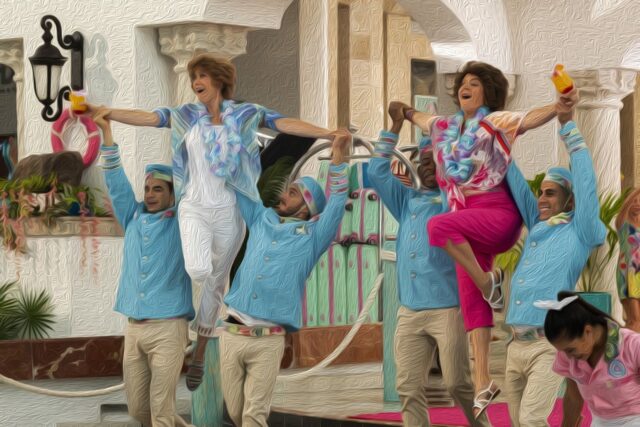
6. Barb & Star go to Vista Del Mar (dir. Josh Greenbaum)
One of the funniest movies of 2021, Barb & Star Go to Vista Del Mar shows the real power of true friendship that can conquer just about anything from a vacation at a cheesy Florida resort to humanity’s mass extinction via killer mosquitoes. – RO

5. Summer of Soul (dir. Questlove)
A good documentary, in my opinion, should educate and entertain. Summer of Soul knocks it out of the park on both (pun intended). Summer Of Soul (…Or, When The Revolution Could Not Be Televised) tells the forgotten story of a multi-week music festival called the Harlem Cultural Festival that happened the same summer as It already works as a terrific music-based documentary, but it’s even better when realizing how innovative Questlove is to use these performances as segments to push into the different things going on with black culture during that time. As I continue enjoying the fact that his footage was discovered and shown back to surviving band members and attendees alike, it’s something I’ll continue to appreciate when it comes to what cinema can provide. -AN

4. West Side Story (dir. Steven Spielberg)
The musical is one of a handful of mainstream genres in which cinema can reach its full potential, the collision of a great many disciplines into something completely unique that has enthralled audiences for decades. Nevertheless, the form has become too ill-considered in the past twenty years, often unable to grow with the times, and not pursued by serious filmmakers with genuine talent for the ways the camera and performer can dance together in harmony, who can seize the way blatantly artificial light can cause sensations naturalism can only dream of. Steven Spielberg is no stranger to harmonizing his performers and camera, his cinematographer Janusz Kaminski no stranger to flooding us with spellbinding light, here finding their natural, ultimate outlet, a restaged and reworked version of one of the greatest musicals ever concocted. His version sees the neighborhood tearing itself down well before the Jets and the Sharks ever could, yet the background of impending industrial slaughter doesn’t deter them one bit from the only problems they can feel at the end of their fists. The world is coming down around us, as well, yet we fight meaningless battles and fall in love and dance in the streets, and this sideways reflection of our lives, for this to come out in another Christmas season leveled by the pandemic, to see his cast take to the streets in high ecstasy while they still could…to feel pretty, to celebrate tonight, to try fruitlessly but with brief hope to run away…I almost never cry at movies, but I saw this five times in theaters, in tears every time. After fifty years plugging away, Spielberg remains one of the very best. -SN

3. The Power of the Dog (dir. Jane Campion)
Can you believe that Jane Campion almost retired from filmmaking after In the Cut? Thank God for all of us that she one day casually picked up Thomas Savage’s The Power of the Dog and felt divine inspiration to step back behind the camera. The Power of the Dog embodies the best of Campion’s literary approach to film with new character details and plot developments unfolding with each chapter with a final, startling culmination that casts new light on everything previously seen, heard, or experienced. As she has done throughout her entire career, Campion examines how the internal rot of toxic masculinity spreads to and spoils the hopes and self-worth of others and sets the story in a time and genre where the conventions of what it meant to be “manly” are brought into painfully sharp contrast with the damage of those expectations. What results is almost a slow burn thriller populated with morally and emotionally complex characters that we can neither fully embrace nor fully discarded as they all interact with and react to a tangled web of poisonous presumptions playing out in their traumatized lives. Like all great films, The Power of the Dog rewards rewatching, allowing viewers to more clearly pick up on subtle character moments and hints of where the story was always heading. Armed with the knowledge of the film’s final moments, you can more sharply tune yourself into Jonny Greenwood’s dissonant score, Ari Wegner’s evocative cinematography, and the coded behaviors of what initially seem to be easily decipherable people. – JR
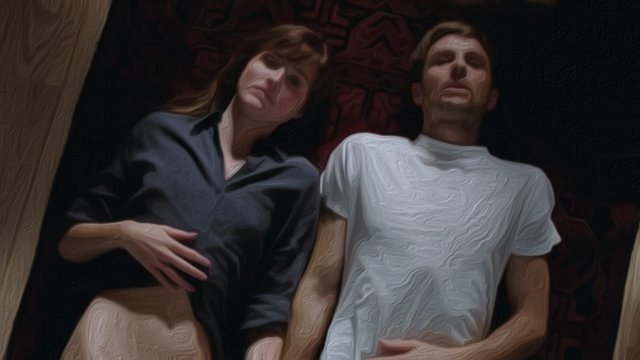
2. The Worst Person in the World (dir. Joachim Trier)
The pressures on young people of today also come front and center in Trier’s near-comedy, near-melodrama, a film of a dozen chapters chronicling postgrad life. Julie (Renate Reinsve) churned through a handful of majors in college, starting with surgeon and plummeting to on-again/off-again writer, ending her collegiate career as a part-time salesperson at a chain bookstore. Fortunately, she’s caught the eye of Aksel (Anders Danielsen Lie), a successful middle-aged cartoonist who doesn’t need her to be anything but herself. Well, maybe if she wanted children that would help. But Julie doesn’t know what she wants. It could be the odd tall man (Herbert Nordrum) she meets at a wedding she crashes. That feels like romance. Trier’s film is as interested in fantasy as it is the concrete things that drive our romantic lives, full sections dedicated to fantasias where others couldn’t be more ordinary. It’s the rare film that seems to capture the present all at once, like it dropped its needle on the record rotating all around us and picked up the frequency we’re emanating. But of course, those are outdated terms, and that world has left us completely behind. There aren’t any times but new times. – SN
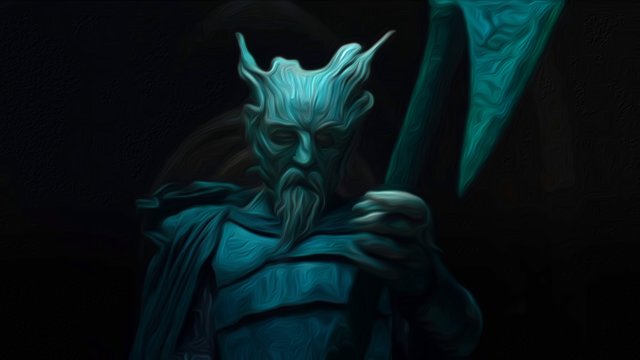
1. The Green Knight (dir. David Lowery)
The Green Knight was probably one of the most beautiful movies of 2021. I walked away from it in a bit of a fog but what stuck with me were the visuals and performances. The film follows Dev Patel as Gawain on his heroes’ journey, though it might be more accurately described as an ‘I hope I’m not a coward’ journey. The film, much like the epic poem, follows a series of lightly connected stories as Gawain rides out to meet his fate with the green knight. The film is beautiful, confusing, haunting, and thought-provoking. It feels very much like a spiritual sibling to director David Lowery’s 2017 A Ghost Story. If Casey Affleck wandered through the background of The Green Knight under a bedsheet, I would have completely believed it. -SB








